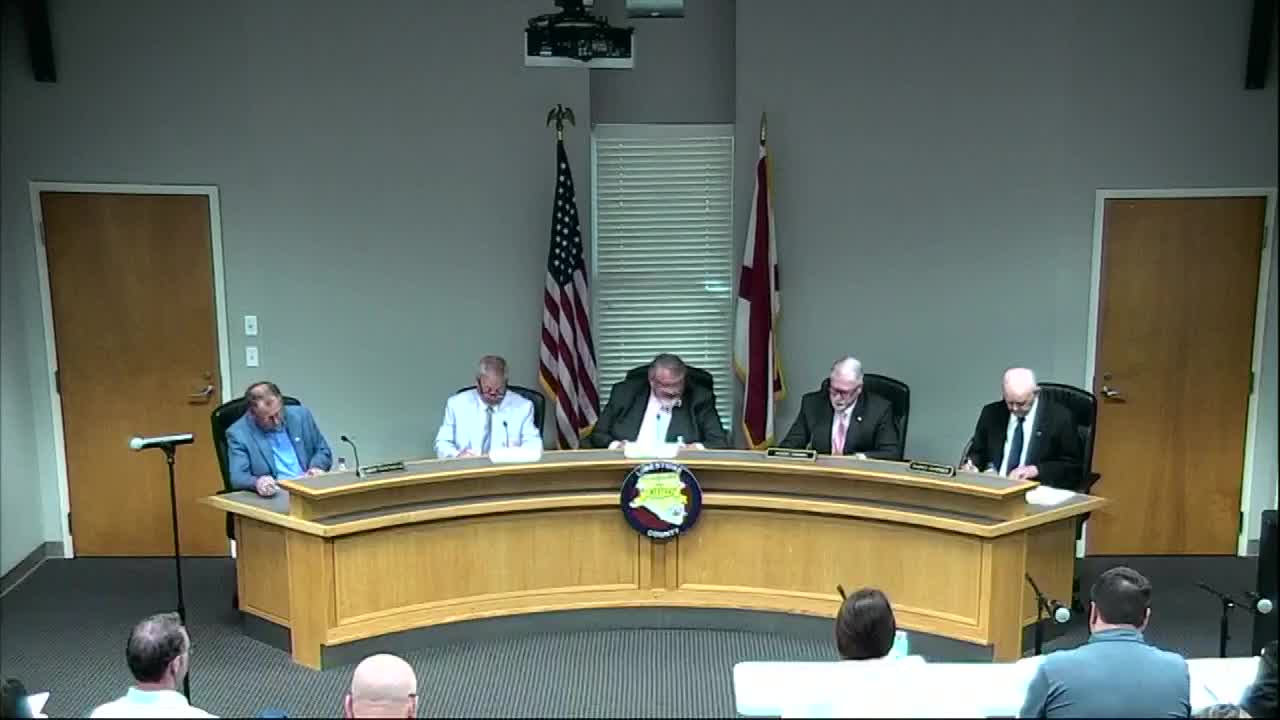Article not found
This article is no longer available. But don't worry—we've gathered other articles that discuss the same topic.
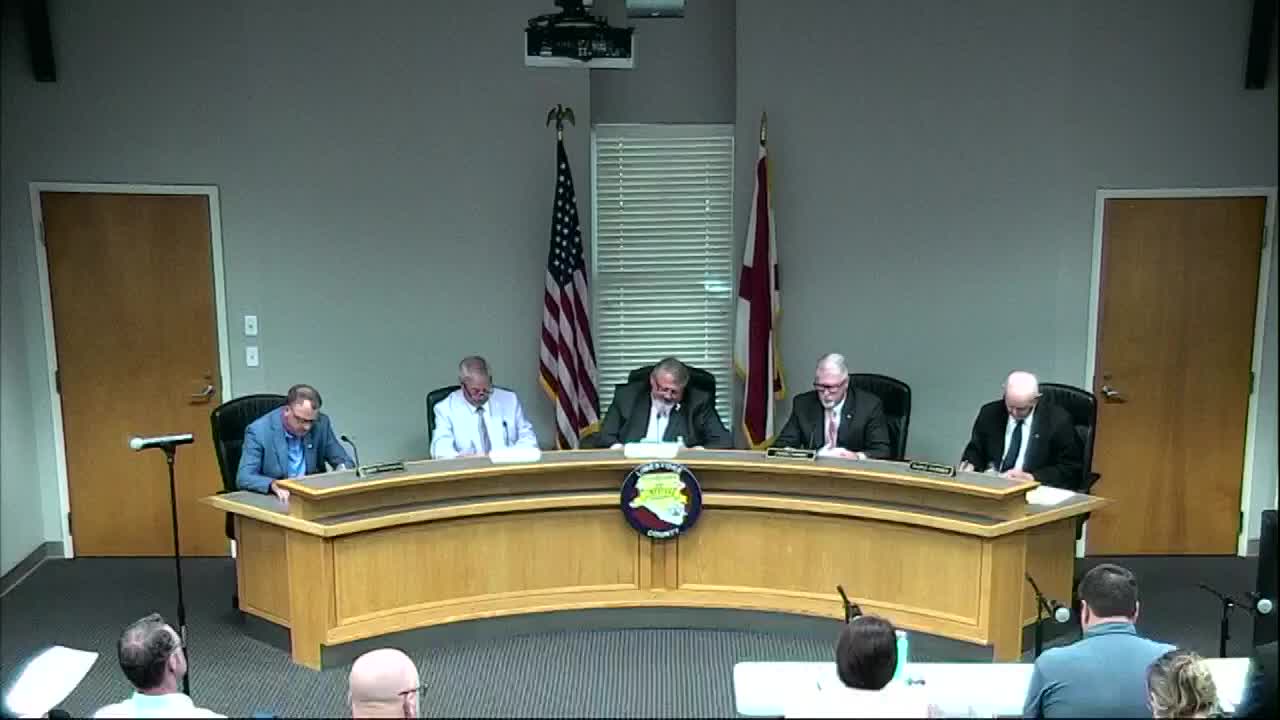
Commission reviews consent items: retroactive medical supply agreement, camera license, vehicle auction, staffing and subdivision report
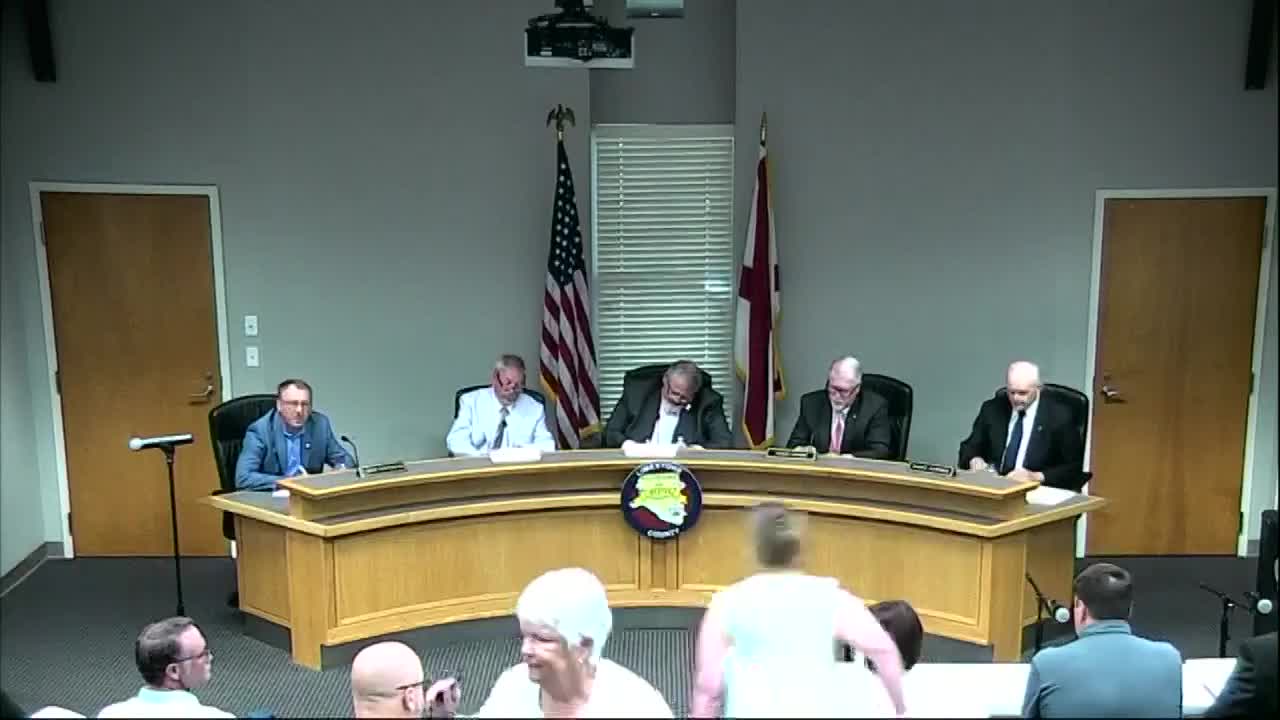
Resident questions sale of county properties and vacancy of buildings sold to private buyer
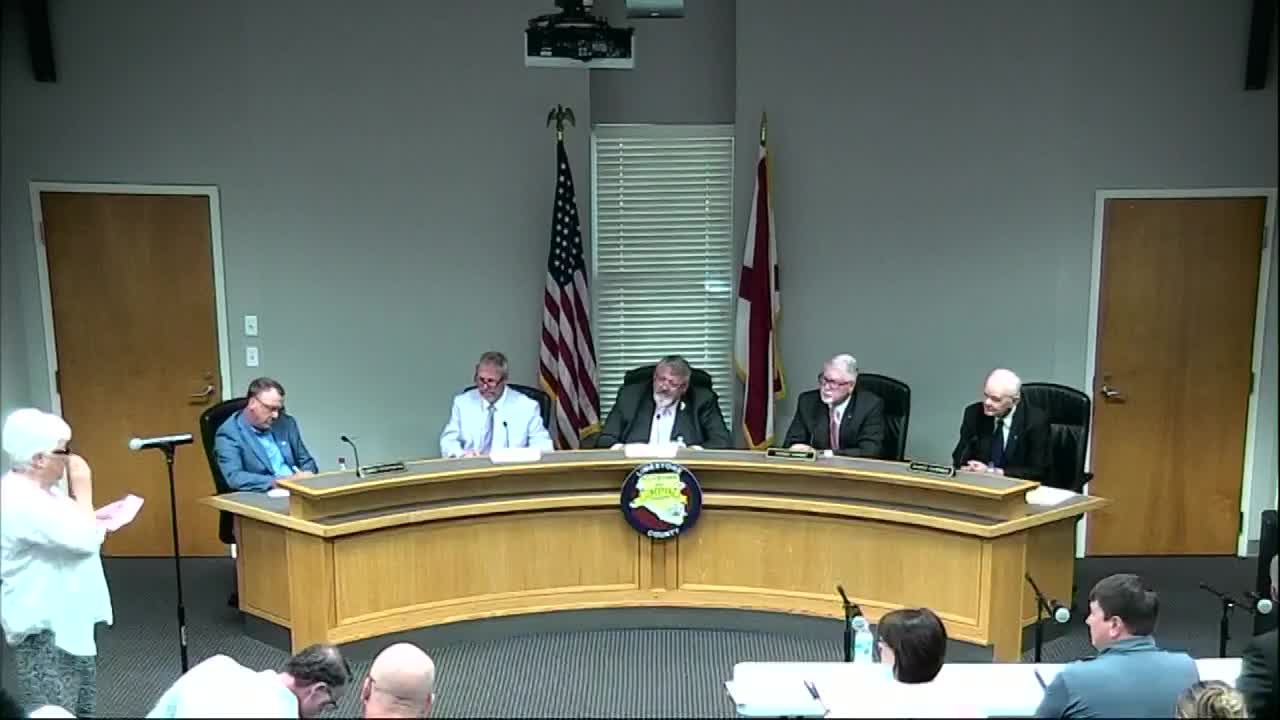
Resident urges Limestone County to repair narrow, eroding Liberty Way access road
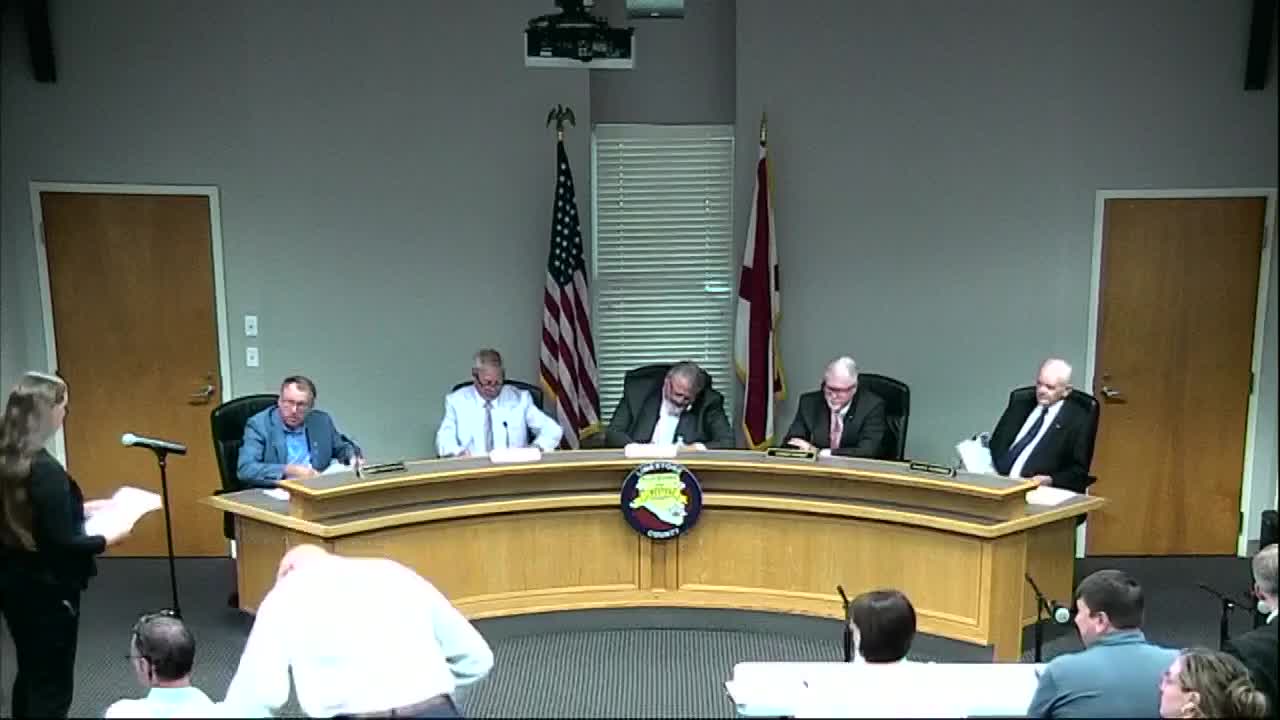
Residents urge Limestone County to tighten land‑use protections after asphalt plant moved into a residential area
